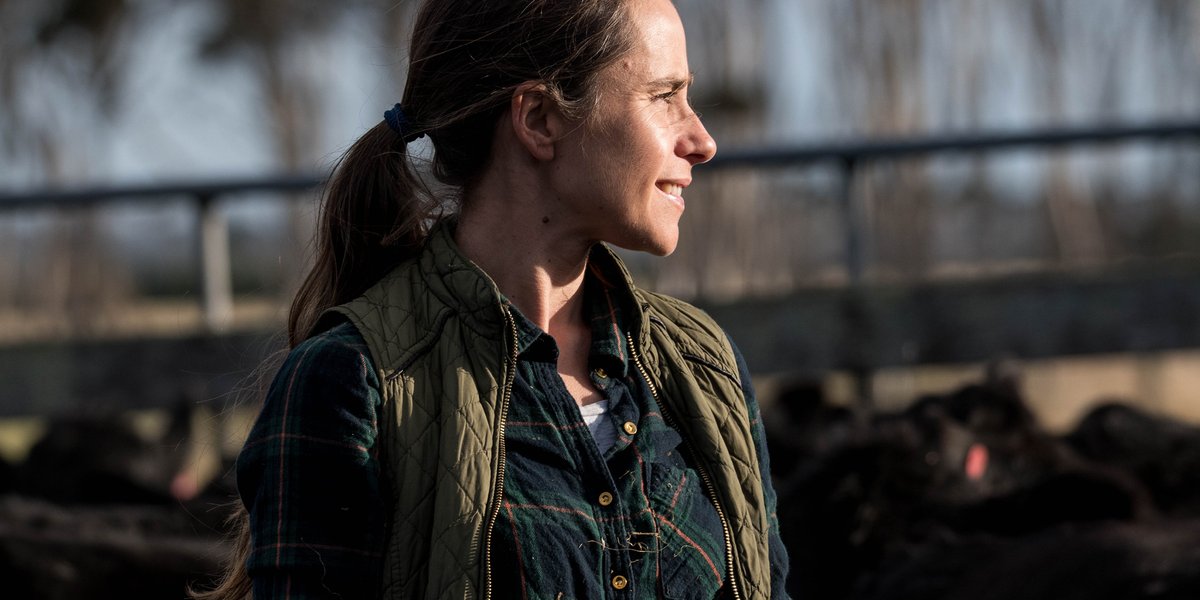Julian von Bibra
"Despite all the opportunities, all the encouragement elsewhere, there was no way I would do anything outside agriculture. [My parents] instilled in me such a love for the land."
"We can’t compete with the scale of the mainland. This limiting factor is our strength. We don’t compete on scale. We compete on the fact that it isn’t freely available, that it is different."
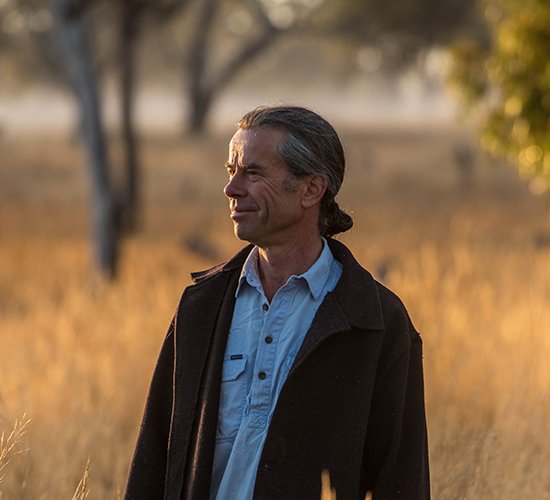
Julian von Bibra grew up in the Tasmanian midlands, watching his family and learning the business of farming. Yet when it came time for him to pursue a career, his parents encouraged him to do anything else.
A feeling of isolation, low rainfall, and the whims of the global economy can make life as a doctor or a plumber seem quite attractive.
“It was seen as special but really hard,” he says, on a typically sunny morning in his home. “In the 1980s farmers weren’t acknowledged and rewarded the way they are today. The feeling was: if I did choose farming it should be because I had given other things a go.”
Yet like other Tasmanians, the more Julian heard it was too hard or impossible the more he wanted to do it. He became a seventh-generation farmer.
“Despite all the opportunities, all the encouragement elsewhere, there was no way I would do anything outside agriculture. They instilled in me such a love for the land.”
Julian says his parents taught him it was more than a business. Profit could not drive him. Before anything else, it has to be a commitment to the land and to the animals.
“If you look after the land it will look after you. We’ve had four generations on this site. It means so much to us. Imagine having 40,000 years of connection to the land and then to lose it. This puts it all in context.”
Julian learned to work in harmony with the environment, with nature, with the seasons – rather than trying to fight it. Still, it was just as hard or harder than he had envisaged.
“You can become unstuck,” he says. “I had to do something to overcome the feeling of being isolated and the scale of the challenges in farming where so much of it is out of our control.”
Julian had to make tough decisions. So he ran.
“Trail running in wilderness areas and national parks took me away from where I am in day to day life, where I often feel vulnerable and exposed,” he says. “It gave me clarity. Spending a day climbing a mountain showed me how simple it really is.”
Julian decided to put large areas of his family’s land into conservation. While this might not have made sense on a traditional balance sheet, it has added tremendous value.
“We live in the edge of the wilderness here and we can’t take it for granted,” he says. “We have to respect that balance. We can’t compromise that wilderness space around us.”
Carbon markets are beginning to add economic incentives to these sorts of decisions. And increasingly, customers around the world want to know that farmers care deeply for land and animals.
“Undoubtedly, feeding the world has put a lot of pressure on farmers,” says Julian. “But family farmers are so long-thinking. We have been thinking about and planning for sustainability for hundreds of years. There is always that overriding dream of handing it on to the next generation.”
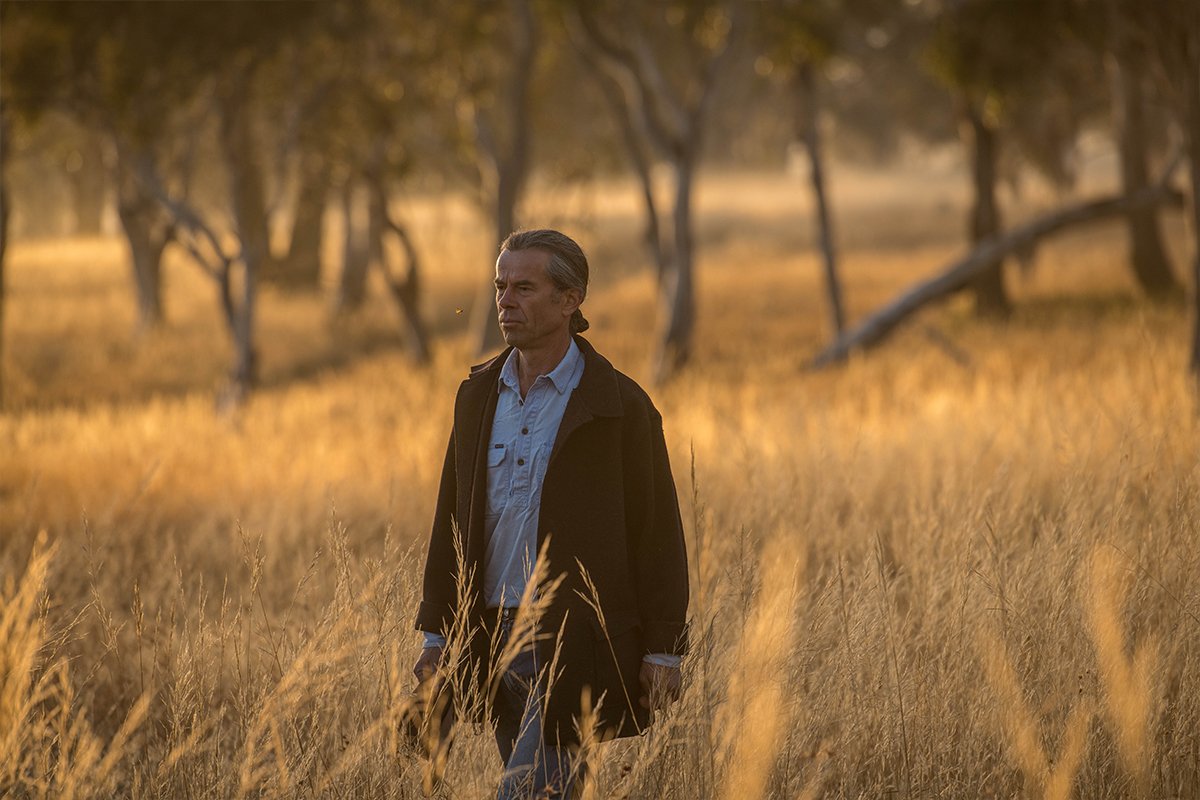
Running in the wilderness gave Julian and his family the courage to choose another difficult path, to create their own brand and find their own customers rather than treat their wool as a commodity.
“Often in farming, you sell into a market where you lose your identity. There are examples in Tasmania, all around us, where taking the easy path is not the best path. Tasmania makes us unique, and so does the passion for what we do. This resonates with our customers. If we can tell our story we can offer something that is pretty special for people. We began exploring how to do that.”
This exploration took Julian and Annabel von Bibra to the fashion capital of the world, Milan.
“We found customers who recognized provenance and care, quality and conservation,” he says. “That uniqueness of Tasmania, single-sourced wool from a very special part of the world. Sheep who live in a really harsh environment, throughout the year. Today when you visit Italy you see Tasmanian wool has quite a presence. This is where fine wool is grown.”
Today there are other farmers on a similar journey, and the world’s top fashion houses are looking for it – Tasmanian quality and Tasmanian stories.
“It’s come through geography, through being isolated, always perceived as the bottom of Australia, the smallest state, having to differentiate ourselves. We can’t compete with the scale of the mainland. This limiting factor is our strength. We don’t compete on scale. We compete on the fact that it isn’t freely available, that it is different.
“Tasmania has been lucky in that the products we produce are suited to our landscape and culture. They stack up in quality. Our seasons give us an opportunity to harvest and create products the world wants. We’ve managed to deliver on the promise, the dream.”
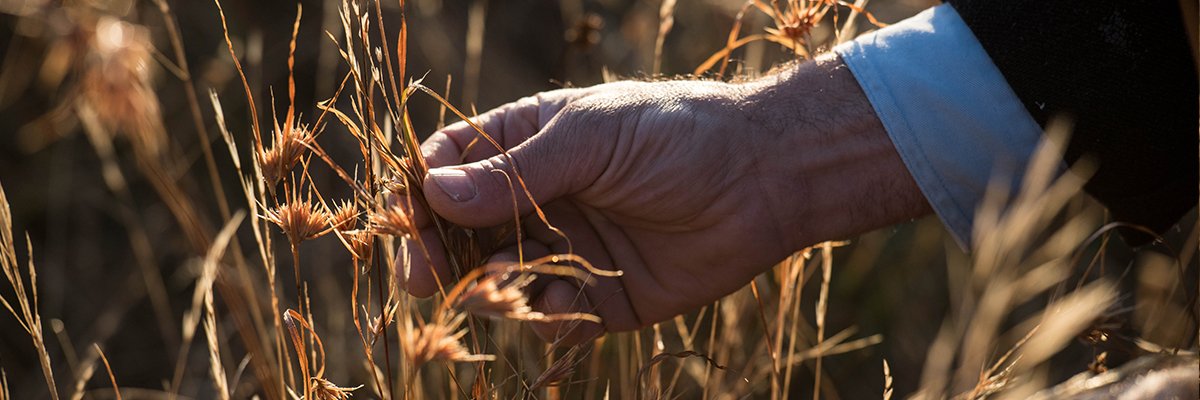
Julian von Bibra is one of 18 Tasmanians featured in our short film about the Tasmanian story. Julian's scene was filmed at his farm, Beaufront.
Read about more Tasmanians
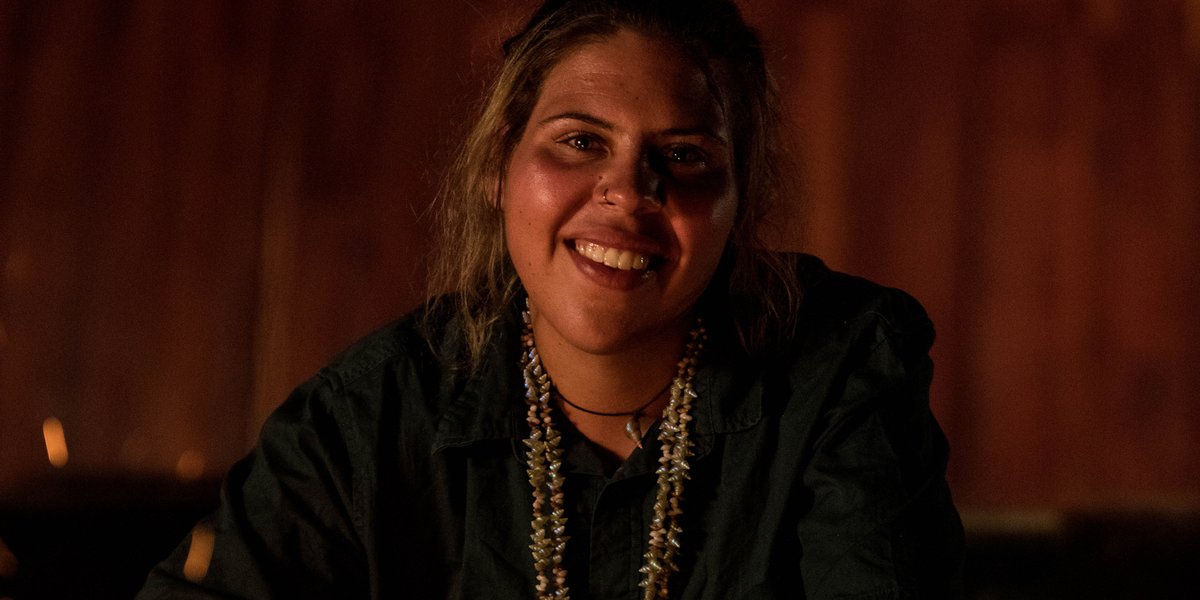
Carleeta Thomas
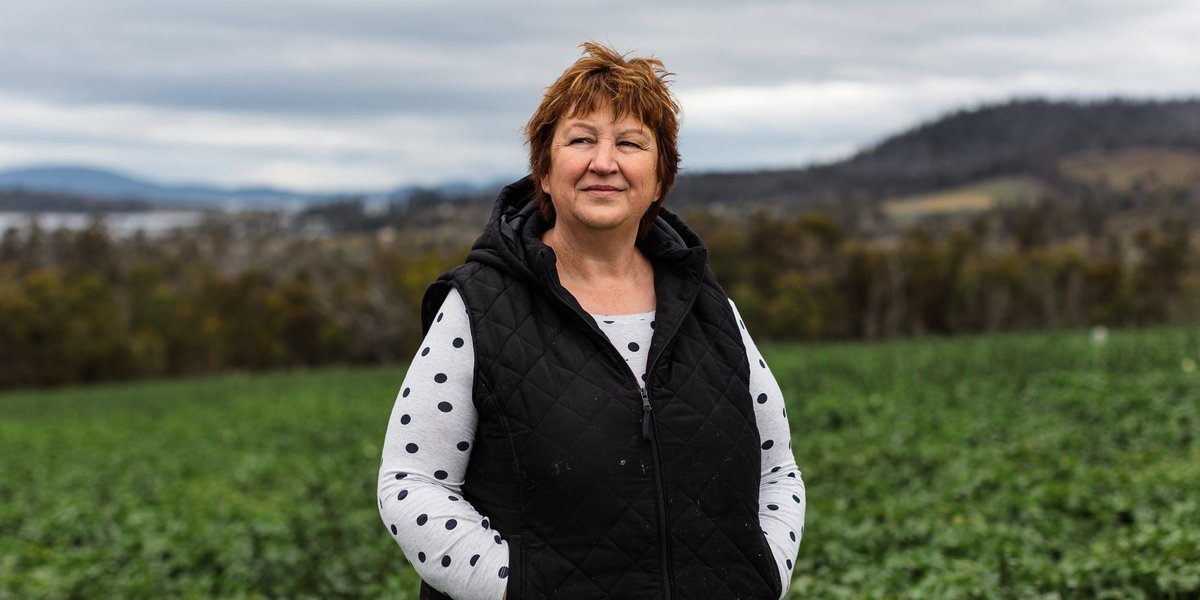
Susan Daly
